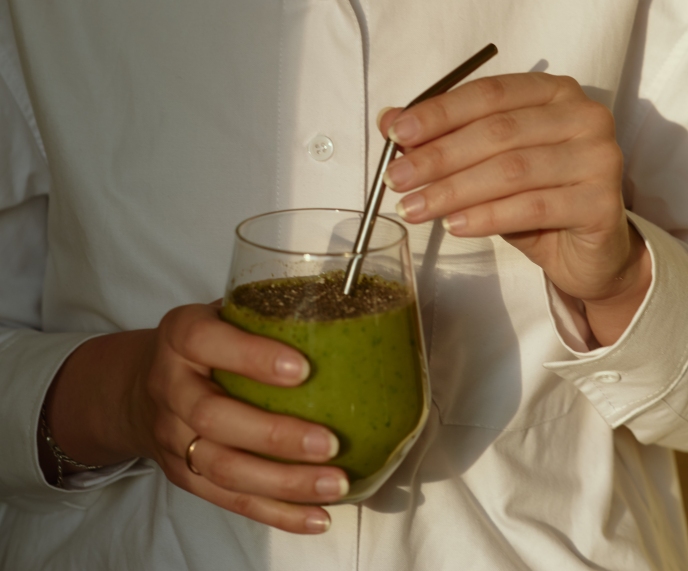Nutrition during and after Mesothelioma treatment
By Warren Miller. 29th June 2022
Recovering from Mesothelioma surgery, chemotherapy or radiation treatment can be difficult. Research suggests that healthier lifestyles may improve the quality and length of life of some cancer survivors.
During treatment, good nutrition can help in maintaining energy, muscle mass and weight to tolerate that treatment. It can also support the immune system and may lower your risk of infection and help you heal and recover faster.

Mesothelioma treatment can reduce appetite, make swallowing difficult, cause fatigue and change the way foods taste. For many their taste buds have been altered during the treatment of Mesothelioma.
Food may have a metallic taste when receiving chemotherapy. It is important to keep trying foods and taking in calories because as you are recovering from surgery or chemotherapy the taste buds will change again. Maybe the food that tasted awful a few weeks ago will taste better down the road.
Choosing foods that are high in protein and fat will offer the most reward. Offering starchy foods or carbohydrates like pasta, bread, potatoes and sources of protein like fish, chicken, meats, nuts, turkey, and cheese are great options.
Soft Food is best for nausea or lack of appetite
For many, food can be overwhelming and difficult to eat after Mesothelioma treatment. Breaking down meals to smaller portion sizes and more frequently may be easier. If food is not the best choice, drink high calorie protein drinks. There are many protein drinks available to suit your needs and taste.
Food that is soft or in liquid form is best for nausea or lack of appetite. Soups, pasta, smoothies and yogurts and pasta are all good foods to try when you don’t feel like eating. Keep up fluid levels also helps - especially drinking water. Milk, soups and fruit/vegetable juices will not only hydrate, but provide some extra nutrition too.
Some food is likely to cause mesothelioma patients to experience discomfort. Specific foods to eat or avoid will really depend on your individual side effects. For example, if you are experiencing a sore throat:
- Avoid dry rough foods such as crisps. crackers, granola and toast
- Avoid spicy and acidic foods such as orange juice, curry or hot sauces as these can irritate your throat further
- Soft bland foods are easier to swallow. Eg: yogurt, ice cream, soup, milkshakes, cottage cheese and puddings
- Use sauces, gravies and other liquids to moisten foods
Tracking nutrient intake help people improve their diets
An important tool in determining which foods help mesothelioma patients feel their best is keeping a log or diary of what foods were eaten, when and how each made the person feel. Losing the desire to eat is extremely common and a number of changes can cause this to happen, including the stress of a diagnosis, the treatment and it's side effects or pain that the tumours cause. This loss of appetite can lead to weight loss - typically a combination of muscle and fat. This weight loss can lead to:
- Delayed healing after surgery
- Longer recovery time in between chemotherapy cycles
- Possible delayed radiation therapy because of debilitating side effects
- Dehydration and fatigue are also common side effects from eating poorly
All these factors can severely impact one’s quality of life
To avoid weight loss, it is important to get not only enough calories but also enough protein. Proteins are the building blocks of our cells and are responsible for the body’s growth and repair. Getting a mix of calories from protein, fat and carbohydrates will help to keep you strong both mentally and physically. Tracking nutrients and calories may be more challenging than simply writing down the foods you’ve eaten.
Dietitians can help to tailor a nutrition diary with the specific needs of mesothelioma patients in mind. They can arm you with the tools you need to stay stronger and healthier during your treatment. They’ll also be able to provide you with more detailed instructions on how to get stronger and avoid further weight loss.
Exercise regimes during mesothelioma treatment
Many people attempt to continue with their exercise regime throughout treatment of mesothelioma, and others never had a regime and become engaged in one. Walking is one of the easiest and accessible forms of exercise. Whatever your choice of exercise is there are many benefits to it while recovering from your treatment with cancer.
Exercise can lower your risk of depression, anxiety, improve sleep and reduce the risk of developing other chronic diseases. Many people include stretching and breathing exercises as well.
If you have recently been diagnosed with an asbestos disease, we are here to answer any questions you nay have about the options to claim compensation. You can contact us on the freephone number below or request a call-back and we will call at your convenience

Author
Warren Miller MSc. BSc
Claims manager and website author
Warren has been assisting victims of Mesothelioma and asbestos cancer for more than 18 years. He is also the senior technical author of this website, responsible for sourcing legal and medical material beneficial to those who may been recently diagnosed with an asbestos disease.. Read more >













